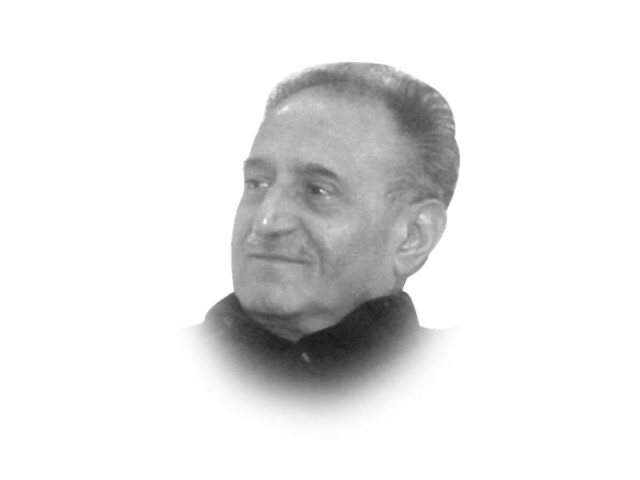The Man
Mahathir Mohamed in Malaysia & Deng Xiaoping in China were the prime drivers of their countries' rapid economic growth

The writer is a retired brigadier and served in the Special Services Group
Pakistan, with its vast human and natural resources, should have been transformed into a modern, industrialised state and its people should have been enjoying a quality of life at least equal to that of the people of the developed states. After all, this was the vision of its founding fathers and its raison d’etre as well. Yet, even 44 years after its break-up, the remaining Pakistan remains an underdeveloped state, in which the quality of life has become progressively worse. Isn’t it a paradox that such a rich country should have so many poor people living in it? Born as a nation, the truncated state is struggling again to survive as a country. Today, people are frightened of tomorrow and any thought about the country’s future fills them with foreboding.
Great leaders are endowed with thought of the highest quality and the ability to translate it into actions. They articulate a vision that inspires the people, excites them, stimulates them and drives them to work hard to create reality out of fantasy, and then they develop an ingenious plan to achieve it. B H Liddel Hart once said, “The influence of thought on thought is the most influential factor in history … it is man’s power of thought which has generated the current of human progress through the ages.”
Great leaders create an environment where performance and commitment predominate, not mediocrity and flattery, where decisions are based on principles, not expediency, where the focus is on achieving breakthroughs, not incremental change, and where the complex is translated into the simple. They foster economic growth, promote social justice and enhance the quality of life of their people. They don’t demand respect, they earn it. “Titles distinguish the mediocre, embarrass the superior and are disgraced by the inferior,” said George Bernard Shaw.
Outstanding leadership transcends all other things and is the best gift that can be given to people. If by a quirk of fate, one such leader had blessed Pakistan, its history would have been embellished by stories of success, not tainted by failure. Instead, what it got were leaders steeped in mediocrity, whose thoughts and actions were governed by self-interest, who were incapable of high order thinking, and who lacked the ability to grasp the wider implications of a situation, problem and action.
The irony is that these leaders never tire of delivering sermons on the virtues of democracy, only to use it as a facade behind which to fulfill their lust for power and personal aggrandisement. They talk of the rule of law, yet consider themselves above it. They talk of accountability, yet resort to all kinds of machinations when called to account. They talk of justice, yet spare no effort to undermine the justice system. They talk of human rights, yet turn a blind eye to the millions who are languishing in slavery under feudalism. They talk of principled politics and good governance, yet have turned these into a game of high stakes and introduced a culture characterised by institutionalised corruption, incompetence, inefficiency, inertia and sycophancy. Today’s Pakistan, defeated and truncated in war and prostrated by poor governance in peace, is a testimony to their personal inadequacies. The people of Pakistan have suffered too much for too long at their hands. They can see the foundations of the state being eroded bit by bit leading them to conclude that the failure of Pakistan is perhaps, predestined.
Islam aims at changing life and producing a new man and a new society, both committed to God and the welfare of mankind. Isn’t it ironic that as creations of the same God, leaders of the developed states have translated this aim into actions that transformed the lives of their people, while in the Islamic Republic of Pakistan, Islam has become an object of mere lip service? No longer, therefore, is the country fit to be called an Islamic republic.
Is there a sovereign remedy? Yes. Demolish the old super structure of the state and build a new Pakistan on new foundations. The country’s centre of gravity resides in its political system. The present political system, tried, tested and failed, cannot do this. This can only be done by a political system that would allow the finest minds in the country, pre-eminent in their respective fields, to be inducted into positions of governance, both at the federal and provincial levels. It is only world class thought, translated into superlative actions that can retrieve Pakistan. Can our political scientists develop such a system? Until then, we can keep waiting for The Man and keep talking of the glory of Mohenjo Daro, Harappa and Taxila, and keep living in what could become the ruins of history.
Published in The Express Tribune, September 15th, 2015.
Like Opinion & Editorial on Facebook, follow @ETOpEd on Twitter to receive all updates on all our daily pieces.














COMMENTS
Comments are moderated and generally will be posted if they are on-topic and not abusive.
For more information, please see our Comments FAQ